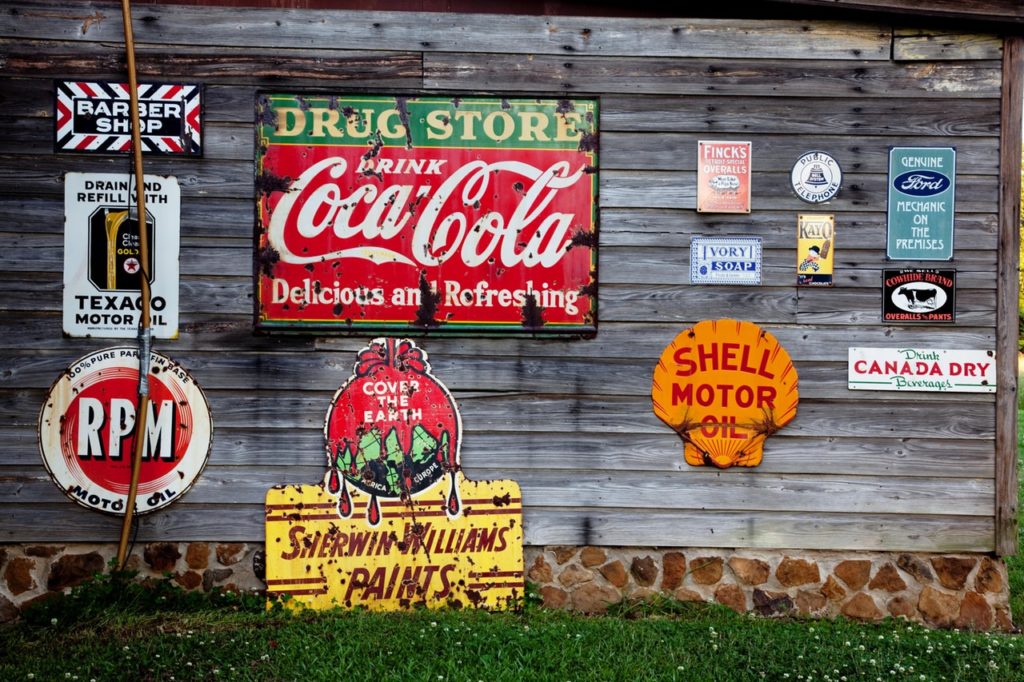There’s a war going on in the marketing world which is all behind closed doors…it’s been raging for decades and I seriously doubt it’s about to fizzle out anytime soon…
And that’s the war of the words. Seriously.
Since the dawn of marketing, there’s always been a divide between creatives who push branding and those who stand firmly in the direct response camp.
And this is extremely significant for you as a business owner because it’s going to directly impact your bottom line – which is why you need to pay attention to this post!
Branding is also known as mass marketing and is designed to remind your audience of your brand and your offers. The big idea behind branding is that increasing exposure to your brand means you stay top of mind for potential prospects – and this means that when people need what you have to offer, they’re more likely to buy from you.
Brands such as Coca-Cola, Nike and Apple do brand-based or mass marketing, and actually, most marketing you see on TV, radio, print etc tends to fall into this category.
However, there’s a huge problem with mass marketing – aside from being difficult to successfully execute, it eats up two things – time and money. Your ads need to be shown across a variety of different media for an extensive amount of time. Brand agencies tend to call these ‘saturation campaigns.’
Direct response marketing on the other hand, is a different ball-game altogether. This type of marketing is designed to generate an immediate response from consumers. Moreover, unlike mass marketing, each response can be tracked and measured – and this means you can clearly attribute ROI to individual ads.
Here’s The Big Problem And WHY It’s Relevant To You
While branding certainly has its place, it is, in my opinion, not something the average business owner should even try and attempt. This is because brand based marketing is largely unmeasurable.
No one ad can be attributed to bringing in the money – and this means for small business owners, money often disappears faster than a speeding bullet!
The worst part, however, is that most branding agencies will try and convince you that if your ads aren’t bringing in the money, you need to INCREASE the number of ads you’re running or increase the variety of media you’re advertising in (and very often they will tell you to do both) to make the ads ‘stick’ and ‘work’.
And this means you can end up down a huge and what can seem like a neverending rabbit hole of money and stress to go with it…with very little to show for it in return.
Brands like Apple and Coca-Cola can pull off brand-based advertising because they’re big enough to have huge budgets which run into the millions. And while there’s no doubt that these campaigns certainly work, it’s not the case for small business owners who try and emulate the big guns.
How ads make money really comes down to being able to track and measure their effectiveness so you can immediately see what’s working and what’s not.
Direct Response Marketing Is Going To Become Your Best Friend
I’m a huge fan of direct response because that’s how I was taught. I learned very quickly that if your marketing can’t be accounted for and you can’t associate ROI with your ads and campaigns, something is amiss.
That’s the premise behind direct response. I recently had a conversation with a client whose company has been running ads in various print magazines over the course of a few years.
Nothing was tracked, nothing was measured. He couldn’t attribute any sales directly to these ads and worse, he’d spent in excess of 30k which basically didn’t produce any revenue.
That kind of money can break a small business very quickly – and if you’re not careful, can literally be the death of you.
One of my previous clients did something very silly – he paid in excess of 28k for a 4 month TV advertising campaign without consulting me first. Considering I was responsible for managing the outcome of the project, I was extremely upset and angry this had happened without my knowledge and without so much as a discussion with me.
Needless to say, the business made a stinging loss and only recovered around half of what had been invested – and this almost killed the business off. The recovery from this setback demanded a year of intense hard work, cost-cutting and a lot of stress to resolve.
Case in point – brand advertising rarely ever works for small businesses!
I’ve yet to meet a SINGLE small business owner who can say with certainty that they’ve managed to run a successful brand based marketing campaign that’s resulted in positive ROI.
The goal of advertising is that it must make money. You know, stick a £1 in, get £2 out kind of thing.
When you’ve figured out how to turn £1 into £2 predictably and consistently, you now have something that can be scaled and it’s how businesses can grow quickly and easily.
So this brings me to the question:
How Can You Make Money From Your Ads?
Understanding how ads make money is a great place to start because, in order to become profitable, you really need to ensure you’re sticking to some basic rules.
At the very least, you need a way to track and measure the performance of your ads. If you can’t do either, you shouldn’t be running them!
Direct response legend Clayton Makepeace (who by the way, earns multiple millions in royalties and commissions year on year from the ad campaigns he’s created for his clients) says that at the very least, ads MUST:
1) Create or intensify the consumer’s desire and sense of urgency to buy the product – by focusing on the benefits it will bring to the prospect
2) Present compelling reasons why the product is unique and therefore superior to similar products out there, so it becomes the natural and obvious choice to prospects
3) Provide a way for the prospect to purchase the product at the earliest opportunity
Writing a successful ad takes skill – which is why copywriters not only charge a LOT of money to write them, but in many cases, take a cut of the sales too.
Not to worry, even if you’re not a copywriter, you can still churn out really good ads as long as you follow a few rules.
At the very least, your ads should contain the following:
1) Headline – your ad needs something to help it stand out from the crowd. A headline should hook or pull people in so they want to continue reading. Some of the best headlines can be found on newspapers and magazines and they really do compel you to want to buy them and continue reading!
A great headline should contain a big benefit or promise and get you curious to want to know more.
2) Solve a problem – What’s the big problem you’re solving? How can you help people in solving this problem?
3) Big benefits – what’s the big benefits of someone doing business with you? How will their life improve as a result?
4) Include emotional triggers where possible – Focus on the feelings you want to leave people with. Are you offering relief from stress, giving people confidence or helping people feel good?
5) A strong call to action – Tell people EXACTLY what to do next. So if you want someone to click on a button, tell them! If you want someone to call you, tell them!
Of course, it also depends on what KIND of ad you’re writing – for example, if you’re writing ads for PPC or Adwords, it’s much harder to cram all the above into a couple of lines.
Each platform has its own limitations which you should be aware of – but if you’re running ads in print, then you’re pretty much ok.
Finally, ensure your ads are trackable. In the online space, creating separate landing pages or even using a link tracker is better than nothing. In print, ensure you give people a code to quote so you can attribute the ad to any revenue coming in.
Making money from your ads does require a lot of thought – and there are lots of things you need to take into consideration to ensure your ads are profitable – from the amount you spend to the revenue you bring in to the platforms you spend on. You should be able to track everything AND you should be able to understand HOW to scale ads correctly and measure input and output.
I’m going to be hosting an ads masterclass which covers all this and more in a few weeks time. If you’re interested in attending (it will be online), simply register your interest by signing up here: ADS MASTERCLASS
As soon as you register your interest, you’ll be re-directed back to this post. I’ll send details of the masterclass across to you as soon as it’s available.




